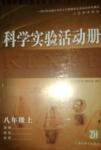题目内容
I was assigned to take care of this patient a couple of weeks ago and began to grow closer to her. Communicating with her was 1 because everything she wanted to say to me had to be written on a notepad. As a nursing graduate, I was able to 2 her mind by observing even a slight 3 in a patient's facial expression.
One day, when I was checking the patient,she 4 me on the shoulder to show me a note,"Do you think I could be let go 5 the hospital in a month to see my niece get married?,,Taking her hand in mine, I told her that I could not 6 her,because I did not want to leave her a 7 sense of hope. 8,I made her believe that I would be there with her every step of the way on her journey toward 9 . Hearing that, the patient gave me a 10 and a hug.
Day by day, I built her 11 by walking around the floor with her. As I did this, I could see before my own eyes that her health was 12 improving and able to walk more steadily. On her last day in hospital, just before her niece’s 13 ,she wrote me one last note, “I couldn’t have done this 14 you; I love you.” After kissing goodbye, I had a strong sense of achievement. I realized that moments like this were 15 I woke up early for 16 in the hospital and spent long hours with her. I truly felt, and her 17 confirmed, that I was an 18 part of this woman’s recovery. My experience with this patient shows me that this career allows me to touch the 19 of people in ways that people in other 20 will never get to experience.
| 【小题1】 |
|
| 【小题2】 |
|
| 【小题3】 |
|
| 【小题4】 |
|
| 【小题5】 |
|
| 【小题6】 |
|
| 【小题7】 |
|
| 【小题9】 |
|
| 【小题10】 |
|
| 【小题11】 |
|
| 【小题12】 |
|
| 【小题13】 |
|
| 【小题14】 |
|
| 【小题15】 |
|
| 【小题16】 |
|
| 【小题17】 |
|
| 【小题18】 |
|
| 【小题19】 |
|
| 【小题20】 |
|
【小题1】A
【小题2】C
【小题3】B
【小题4】A
【小题5】D
【小题6】B
【小题7】A
【小题8】C
【小题9】D
【小题10】C
【小题11】B
【小题12】A
【小题13】C
【小题14】A
【小题15】B
【小题16】A
【小题17】B
【小题18】D
【小题19】C
【小题20】D
解析试题分析:文章讲述了作者作为一名护士,悉心的照顾一位行走不便的病人,同时他们之间的交流也只能是纸面上的交流,通过作者的照顾得以出院。作者自己也感受到了成就感。
【小题1】文章后一句讲到他所想要对我说必须的写在纸上,所以可知与她交流是困难的,故选A.
【小题2】根据句意:因为护士专业毕业,我能够通过观察一些细微的表情而读懂她的想法。故选C.
【小题3】A.担心;B.改变;C.疼痛;D.兴奋。根据句意,甚至在她脸上细微的表情变化,我都能觉察出,故选B.
【小题4】A.轻拍;D.敲击。根据句意,她轻拍了一下我的肩膀,故选A.
【小题5】let go from sth 从…释放,她问我是否可以从医院里出来一个月。故选D.
【小题6】A.失望;B.答应;C.安慰;D.相信。根据句意,我告诉她我不能答应她,故选B.
【小题7】A.虚假的;B.强烈的;C.正确的;D.好的。根据句意,我不能答应的她的原因是我不想让他有一种虚无缥缈的希望,故选A.
【小题8】根据后文,我使她相信我会一步也不离开她,所以前后是转折关系,故选C.
【小题9】A.死亡;B.成功;C.目的地;D.康复。在她通往康复的旅程中,我会一直陪伴着她。
【小题10】A.惊讶;B.凝视;C.微笑;D.口哨。根据句意,应是她听了这个后,给了我一个微笑和拥抱。故选C.
【小题11】根据句意,随着时间的推移,我通过搀扶她走路,逐渐的增强了她的力量。故选B.
【小题12】A.缓慢地;B.完全地;C.快速地;D.最终。句意,她的健康正在缓慢地提高,并且能够走的更加平稳了,故选A.
【小题13】前文讲到了,她想参加她侄女的婚礼,所以这里因为婚礼,故选C.
【小题14】根据句意,没有我,她觉得自己不可能做到这些。故选A.
【小题15】根据前后文的意思,我有了一种成就感,我意识到,像这样的一刻,我为什么要早起为医院而工作,故选B.
【小题16】在医院肯定是工作,故选A.
【小题17】前文讲到了我们之间的交流是通过文字进行的所以这里通过她的便条更进一步的确信了我的感受,故选B.
【小题18】A.不相干的;B.不重要的;C.有教育意义的;D.重要的。我已经成为了这个女人康复之路之中的重要的一部分,故选D.
【小题19】A.财富;B.肩膀;C.生活;D.眼泪。根据句意,我和病人相处的经验使我明白,这个行业帮助我接触到别人的生活,故选C.
【小题20】根据句意,这个行业帮助我经历其他行业的人无法经历的事情。故选D.
考点:记叙文
点评:本文不难,对于文章意思把握是关键。本文中没有过多的生词,答题时要注意答题步骤,可先花2分钟进行整体的阅读,在逐一作答。切不可看一个做一个,这个学生应该注意。

 科学实验活动册系列答案
科学实验活动册系列答案